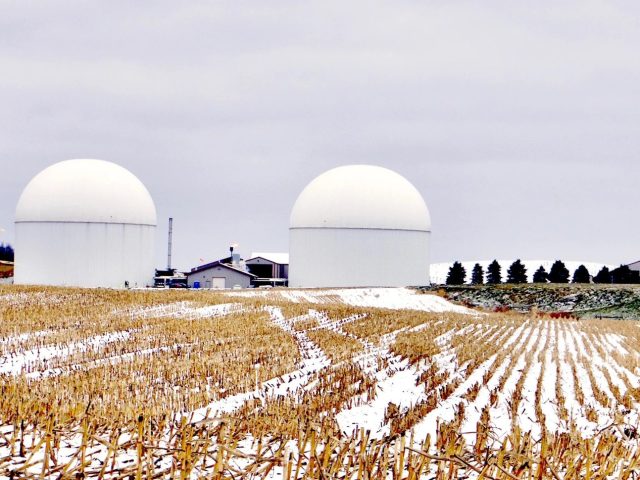Michigan’s Livestock Farm Biodigesters Pose a Water Contamination Risk

Governor Gretchen Whitmer’s plan to generate all of Michigan’s energy from renewable sources by 2040 has contributed to the incentivization of the biodigester industry. Changes in state regulations and tax incentives worth hundreds of millions of dollars have led to Michigan becoming one of the leading developers of manure biodigesters.
These operations convert livestock manure into methane gas that is processed into vehicle fuel. The process also creates a digestate byproduct that is spread on cropland by farmers as a fertilizer. Digestate contains higher concentrations of nitrogen and phosphorus than raw manure and creates a risk for groundwater contamination.
Phosphorus from livestock manure has been identified as a primary cause of toxic algae blooms in the Great Lakes. Excess nitrogen in the soil leads to concentrations of nitrate, which can contaminate groundwater and well water, impacting the health of residents.
In Michigan, industrial biodigester operations are required to direct the liquid portion of digestate into municipal wastewater treatment plants, which limits the risk for groundwater contamination. However, Michigan farms are not subject to the same regulations.
A few Michigan farms have pledged to divert the waste from their biodigesters to wastewater treatment plants, but without regulations in place, most agricultural biodigesters will continue practices that put Michigan’s water resources at risk.
Read the full story at Michigan Radio: www.michiganradio.org/environment-climate-change/2023-12-06/will-energy-from-manure-help-or-harm-water-quality-in-michigan.
